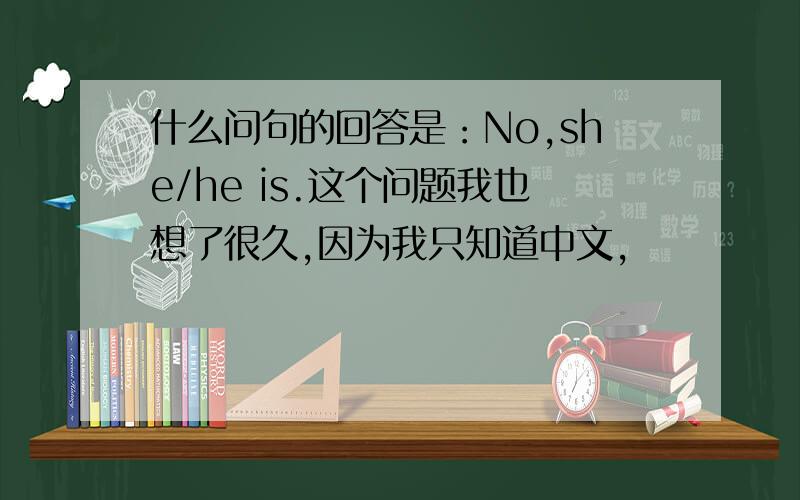什么问句的回答是:No,she/he is.这个问题我也想了很久,因为我只知道中文,
来源:学生作业帮助网 编辑:作业帮 时间:2024/07/09 00:04:11

什么问句的回答是:No,she/he is.这个问题我也想了很久,因为我只知道中文,
什么问句的回答是:No,she/he is.
这个问题我也想了很久,
因为我只知道中文,
什么问句的回答是:No,she/he is.这个问题我也想了很久,因为我只知道中文,
好像不会有这样的答句吧?
英语的答句有一个基本原则:回答是肯定的,前面就用'Yes’;回答是否定的,前面就用‘No',而用回答是肯定还是否定的,完全由回答者的观点决定,而不管问句是肯定还是否定的.
-- Do you think he hasn't finish the writing?
/ Don't you think he hasn't finish the writing?
/ Do you think he has finish the writing?
/ Don't you think he has finished the writing?
/ Do you think whether he has finished the writing (or not)?
( 以上各问句意思基本相同,但是语气略有差别.)
-- Yes,(I think) he has./ Yes,he has.(,I think.)
/ No,( I think) he has not./ Yes,he has not.(,I think )
--
反意疑问句.......
不对,不是
谁知道..
Is she/he ……
IS SHE/HE。。。。。
YES ,SHE/HE IS
就算是反意疑问句也要回答YES SHE/HE IS 或者 NO SHE/HE ISN’T,没有NO,HE/SHE IS的说法。
ISN‘T SHE/HE A TEACHER?他/她不是老师吗?
YES,HE/SHE IS。是,他/她是老师。
NO,HE/SHE ISN’T。不,他/她不是老师。
Is she/he ???
反意疑问句也要回答YES SHE/HE IS 或者 NO SHE/HE ISN’T,没有NO,HE/SHE IS